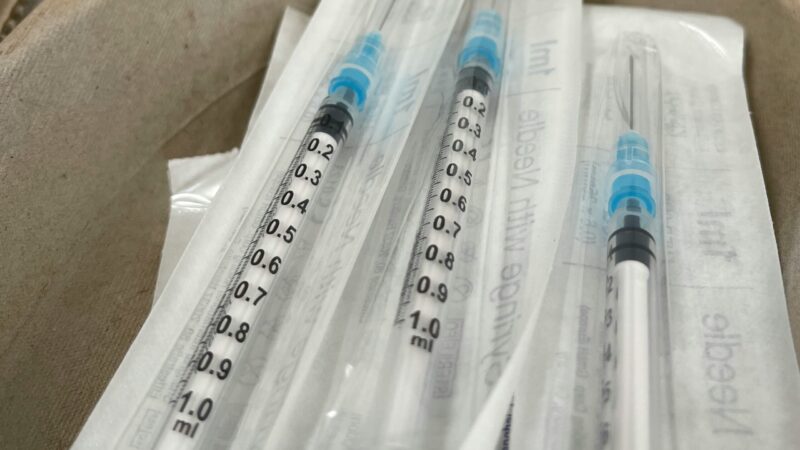The local NHS has started vaccinating people against Respiratory Syncytial Virus (RSV) for the first time ever as part of winter preparations.
RSV, a leading cause of infant mortality around the world, is a common cause of coughs and colds but can lead to severe lung infections like pneumonia and infant bronchiolitis, which are highly dangerous to older people and young children.
The NHS is vaccinating pregnant women and older adults, including those turning 75, from 1 September.
There will also be a one-off ‘catch-up’ offer for everyone aged 75 to 79 years old to ensure the older age group are protected as the winter months approach.
Staff from vaccination and maternity teams have worked to bring together services so that it is as easy as possible for pregnant women to get the life-saving jab at any point from 28 weeks into their pregnancy, alongside their maternity care.
Women should speak to their maternity service about receiving their vaccine from 28 weeks to at any point up to birth. Alternatively, pregnant women can get vaccinated by request at their local GP practice, while older adults will be invited by their local GP practice.
Research from thousands of women across the world who have been vaccinated against RSV shows that it reduces the risk of severe lung infection by around 70% in the first six months of life, with NHS teams across England gearing up to roll out the jabs all year round as of this week.
Having the vaccine during pregnancy is the best way to protect a baby from getting seriously ill with RSV, as the vaccine boosts the mother’s immune system to produce more antibodies against the virus to help protect the baby from the day they are born.
South west London’s Chief Medical Officer Dr John Byrne said the RSV virus is a main cause of winter pressures in children’s hospitals every year, leading to increased pressure on paediatric intensive care units.
He said cases in children have been increasing in the past couple of years, with an average of 146 young children in hospital each day at the peak in winter last year (w/e 3 December 2023), up 11% on the peak observed during the previous winter (132) from the same time in late November.
Dr Byrne said: “Getting vaccinated is the best way of protecting babies, women and families.
“While RSV infections can occur all year round, cases usually peak in winter, so it’s important that those eligible take up the offer as soon as possible this autumn when offered by the NHS.
“For the first time ever, our hardworking staff are offering the RSV vaccine to pregnant women and older adults at greatest risk – helping to protect the lives of those vulnerable as winter approaches.”
South west London’s Chief Nurse Elaine Clancy added: “I appreciate all the efforts across the NHS in bringing together vaccination and maternity services so that it is easy for women to get a RSV jab as soon as they’re eligible.
“As we head into winter it’s vital all those eligible for vaccinations such as RSV, flu and/or Covid-19 take them up as it is the best way to protect yourself and those around you.”
A recent study in the Lancet showed that the new programme could prevent 5,000 hospitalisations and 15,000 A&E attendances for infants – a critical, life-saving step forward to help front line staff prepare for increased winter pressures.
The same modelling suggests that the first season of the older adult’s catch-up programme could prevent around 2,500 hospital admissions, 15,000 GP visits and 60,000 RSV illnesses in adults in the older age group.
